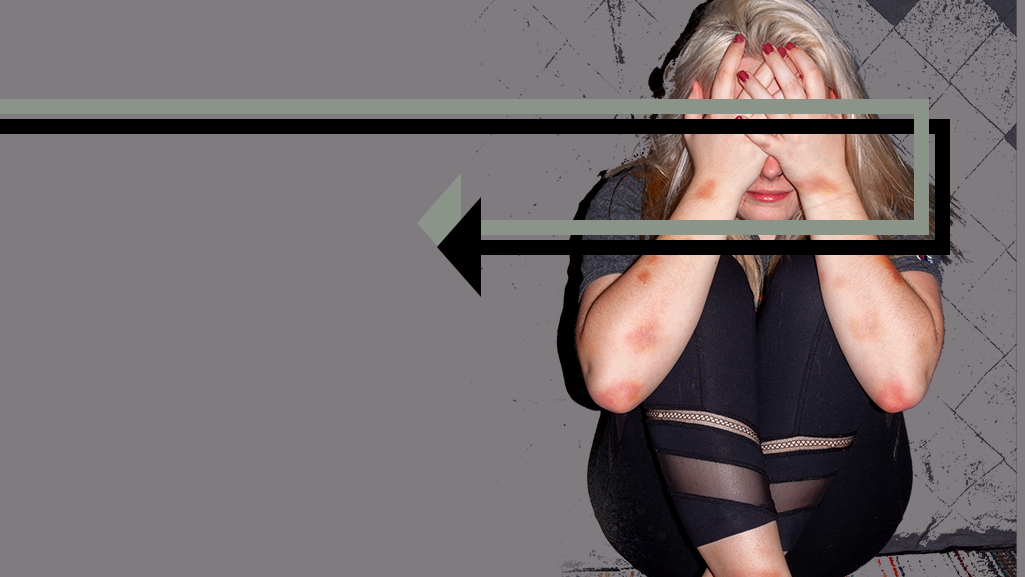Discovering a Way Out
by Tyler English | published Mar. 18th, 2021
Abuse in any sense of the word is not okay, period. When in an abusive situation it can be hard to see a way out, or even imagine a world without the abuse. Speaking from personal experience, it is hard to see a way out of abuse when it is coming from someone close to you.
What Is Domestic Abuse?
According to the United Nations, domestic abuse is defined as “a pattern of behavior in any relationship that is used to gain or maintain power or control over an intimate partner.”
This abuse can vary between relationships but is commonly seen as physical, verbal, sexual, emotional and financial abuse. These behaviors are used to frighten, intimidate and manipulate someone. It can happen between married couples, people living together, couples who are dating, as well as within families.
"A pattern of behavior in any relationship that is used to gain or maintain power or control over an intimate partner."
I experienced a variety of domestic abuse during my first relationship. My abuser made me think that I had to act and look a certain way, basically turning me into his personal project — and then later his play thing.
While I experienced abuse during my first year of college, domestic violence can occur regardless of age, race, gender and sexual orientation.
The victim is also not the only one who suffers in an abusive situation. If the victim has children, other close relatives or other individuals living in the household where the abuse is occurring, they too can be affected.
Getting Help
The first step in seeking safety from abuse is recognizing the abuse, according to the National Domestic Violence Hotline (NDVH). For me, this was the hardest step. It wasn’t until my close friends stepped in and told me they had lost the person I was when I first met them.
Warning signs of abuse should not go unnoticed and the NDVH explains some that may be obvious and others that can go unrecognized. These include, but are not limited to, insulting or shaming you while in front of others and intimidation through looks, actions or use of weapons.
Other warning signs may appear as the simple ‘red flags’ or a new relationship. However, abusive people appear to be ideal partners in early stages of the relationship. For example, jealousy may appear to be a ‘red flag’ but it can escalate quickly as the abuser may begin to pull the victim away from friends and family.
The National Domestic Violence Hotline recommends identifying the abuse, documenting it and working with professionals to create a safety plan.
Available Resources
There are also local resources in Rochester that help those struggling with domestic abuse. Willow Domestic Violence Center offers free and confidential services for those who need them. The Willow Center is the only New York State certified domestic violence service provider in Monroe County.
Willow Center offers support of victims of abuse, their children and other family members if needed. They provide a hotline that is open 24/7, an emergency shelter, safety planning and counseling.
With Rochester being home to a large Deaf community, Willow’s Deaf
There is also the Rochester/Monroe County Domestic Violence Consortium, which coordinates efforts to protect, support and heal victims of domestic abuse. They also hold offenders accountable to their actions.
One of the main focuses for domestic violence centers is the safety of the victims and their families. Support centers and professional care are vital to escaping domestic abuse. There are instances where seeking help can actually lead to increased violence or result in little to no changes. For these individuals, there are safe houses that have an undisclosed location to the public so victims can find sanctuary. The hotline also offers confidential services so that victims can find safety without the abuser knowing.
Support Networks
With professional group counseling, such as the sessions provided by Willow Center, victims of domestic abuse can share their stories and know that they are not alone. With sessions held at a secure location and provided child care if needed, group counseling can be a healthy outlet for victims.
When I was suffering in my abuse, I felt as if I was the only person in the world who would understand what I was going through and what my life was like. Feeling as if I was walking on glass with every step I took, every word I spoke was analyzed and every move I made was watched, I felt small, weak, fragile and caged.
When I first broke out of my abusive relationship, it was my friends who snapped me out of my fog and showed me what was really going on. I leaned on them during my time of need and with their support and my family behind me, I was able to make it through. Others may find strength and support in strangers or within themselves.
"Abuse can happen to anyone — it is not limited to a specific gender."
Abuse can happen to anyone — it is not limited to a specific gender. Domestic abuse is expressed in different ways that attempt to control the actions and thoughts of another. Seeking help may seem impossible, but taking the first step is the hardest yet most important part of the process.
If you find yourself in a situation where you suspect you are a victim of abuse, identify the behaviors and remember it is not your fault. If you feel scared and frightened, it's okay. Listen to those feelings as they are there for a reason. When you feel it is time to look for help, make sure you do it safely.



